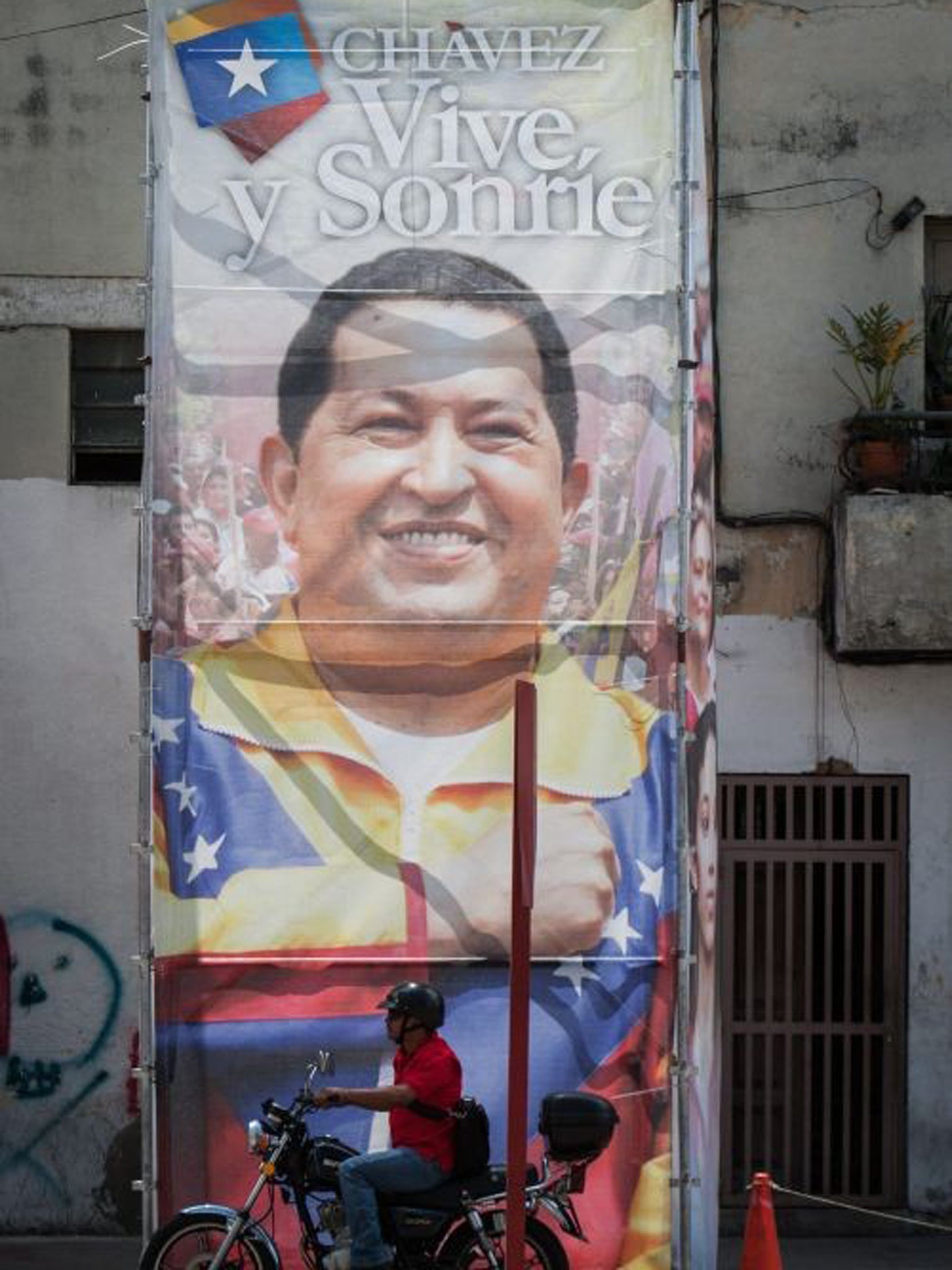Venezuelan president Hugo Chavez 'very delicate' as he is hit by severe respiratory infection

Your support helps us to tell the story
From reproductive rights to climate change to Big Tech, The Independent is on the ground when the story is developing. Whether it's investigating the financials of Elon Musk's pro-Trump PAC or producing our latest documentary, 'The A Word', which shines a light on the American women fighting for reproductive rights, we know how important it is to parse out the facts from the messaging.
At such a critical moment in US history, we need reporters on the ground. Your donation allows us to keep sending journalists to speak to both sides of the story.
The Independent is trusted by Americans across the entire political spectrum. And unlike many other quality news outlets, we choose not to lock Americans out of our reporting and analysis with paywalls. We believe quality journalism should be available to everyone, paid for by those who can afford it.
Your support makes all the difference.President Hugo Chavez is breathing with greater difficulty as a new and severe respiratory infection has taken hold, Venezuela's government said, describing the cancer-stricken president's condition as “very delicate.”
A brief statement read on national television by Communications Minister Ernesto Villegas late yesterday carried the sobering news about the charismatic 58-year-old socialist leader's deteriorating health.
Villegas said Chavez is suffering from "a new, severe infection." The state news agency identified it as respiratory.
Chavez, 58, has been undergoing "chemotherapy of strong impact," Villegas added without providing further details.
Chavez has neither been seen nor heard from, except for "proof-of-life" photos released in mid-February, since submitting to a fourth round of surgery in Cuba on 11 December for an unspecified cancer in the pelvic area. It was first diagnosed in June 2011.
The government says he returned home on 18 February and has been confined to Caracas' military hospital since.
Villegas said Chavez was "standing by Christ and life conscious of the difficulties he faces."
He also took the opportunity to lash out at "the corrupt Venezuelan right" for what he called a psychological war seeking "scenarios of violence as a pretext for foreign intervention."
He called on Chavez's supporters, who include thousands of well-armed militiamen, to be "on a war footing."
Upon Chavez's death, the opposition would contest the government's candidate in a snap election that it argues should have been called after Chavez was unable to be sworn in on 10 January as the constitution stipulates.
Indeed, the campaigning has already begun, although undeclared, with Vice President Nicolas Maduro, who Chavez has said should succeed him, frequently commandeering all broadcast channels Chavez-style to tout the "revolution" and vilify the opposition.
Chavez has run Venezuela for more than 14 years as a virtual one-man show, gradually placing all state institutions under his personal control. But the former army paratroop officer who rose to fame with a failed 1992 coup, never groomed a successor with his force of personality.
Chavez was last re-elected on 7 October, and his challenger, youthful Miranda state Gov. Henrique Capriles, is expected to again be the opposition's candidate.
On state TV last night, opinion show host Mario Silva slung the latest volley of mud at Capriles, claiming his family had purchased a multi-million-dollar New York City apartment with stolen money.
Opposition lawmaker Julio Borges condemned Villegas' political use of last night's health bulletin. "I lament such a poverty of humanity," he tweeted.
Pro-Chavez militant Enrique Barroso sounded grave when reached by telephone.
"This is not easy for him nor for us," he said. "We call on the people to pray and hold vigil for the health of the president."
One of Chavez's three daughters, Maria Gabriela, expressed thanks to well-wishers via her Twitter account. "We will prevail!" she wrote, echoing a favorite phrase of her father. "With God always."
There has been speculation that Chavez's cancer has spread to his lungs and can't be halted.
An oncologist not involved in Chavez's treatment, which has been conducted in tightly enforced secrecy, told The Associated Press that he viewed Villegas' statement as recognition that Chavez's condition is "truly precarious."
He called into question the veracity of Villegas' statement that Chavez had been undergoing chemotherapy, saying patients in such a delicate state are not put on chemotherapy.
Maduro said last week, in the first such announcement, that the president had begun receiving chemotherapy around the end of January.
Doctors have said that such therapy was not necessarily to try to beat Chavez's cancer into remission but could have been palliative, to extend Chavez's life and ease his suffering.
While in Cuba, Chavez suffered severe respiratory infection in late December that nearly killed him, Maduro said last week. A tracheal tube was inserted then and government officials have said his breathing remained labored.
They have sent mixed signals throughout Chavez's post-operative days, and in an early February opinion survey nearly three in five Venezuelans said they believed the president whose largesse has endeared him to the poor would recover.
In Cuba, Chavez has undergone a series of radiation treatments and chemotherapy after his operations.
The entire treatment regimen was kept far from public scrutiny.
AP
Join our commenting forum
Join thought-provoking conversations, follow other Independent readers and see their replies
Comments